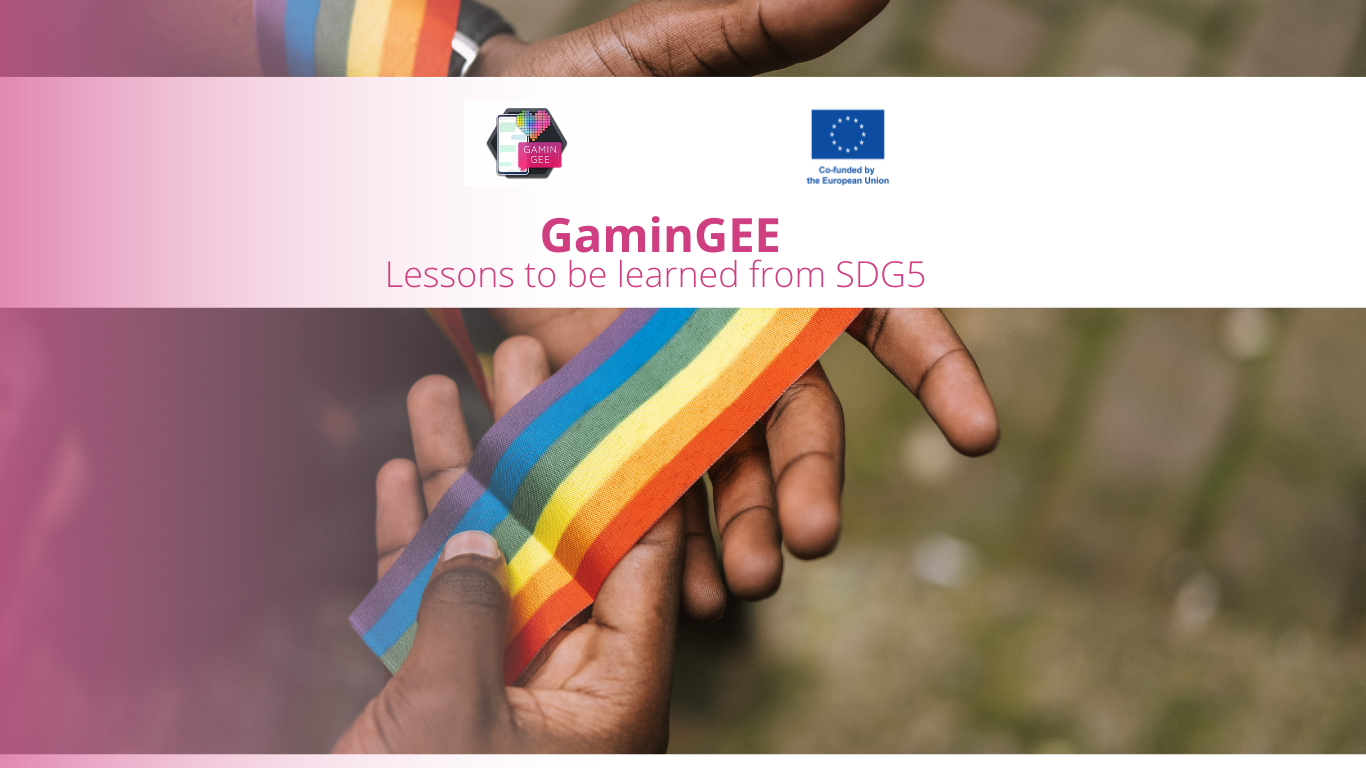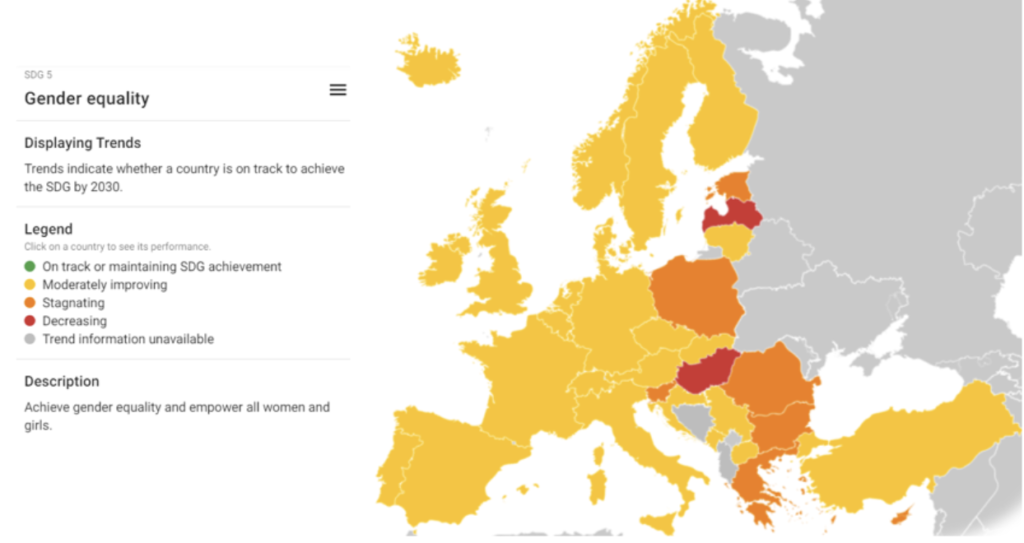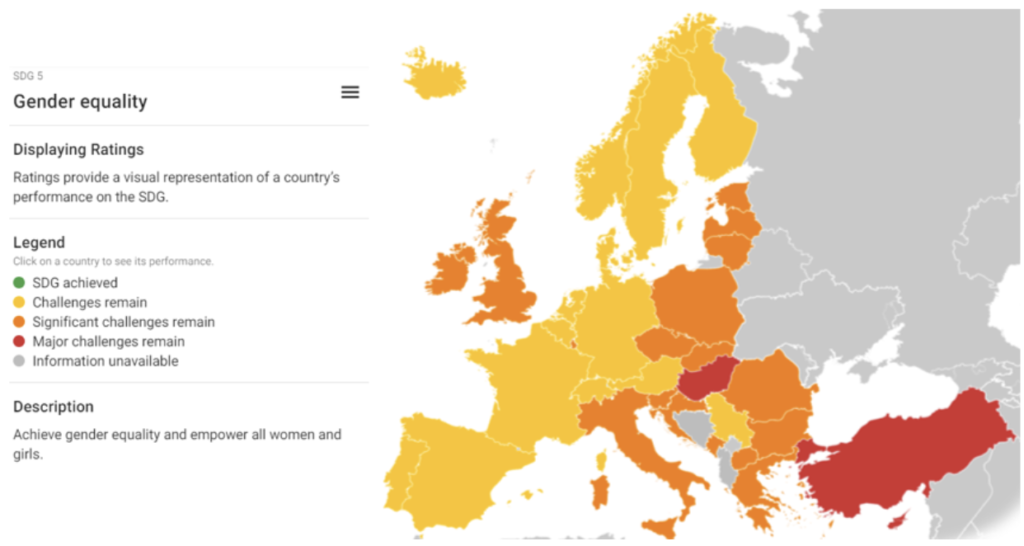
In 2015, the United Nations came up with a plan to ensure peace and prosperity to everyone, everywhere in a way that doesnt affect the capabilities of the future generations to enjoy the same possibilities. This plan took the shape in the 2030 Agenda for Sustainable Development which consists of 17 sustainable development goals (SDGs) with 169 associated targets which are based on 5 Ps (People, Planet, Prosperity, Peace, Partnership) that tackle a wide range of social, environmental and political issues such as ending poverty, improving health and education, reducing inequality, good governance, global partnerships and so on. All UN member states agreed to these goals and made a commitment to accomplish them by 2030, among which, a very important one, SDG number 5, gender equality.
Gender is an important component that can be found at the intersection of multiple other sectors, therefore, it is explicitly mentioned in 10 other SDGs. Looking at how good we currently manage this issue, we see some unpleasant findings: „at the current rate of progress, it may take another 286 years to remove discriminatory laws and close prevailing gaps in legal protections for women and girls”, „1 in every 3 managers/supervisors is a woman, at the current pace of change, parity will not be achieved for another 140 years”, „Women hold only 2 in 10 science, engineering and information and communication technology jobs globally” and the list can go on.(1)
At the moment, none of the EU member states has achieved SDG 5 and neither one of them is on track to achieve it by 2030, as stated by Europe Sustainable Development Report 2022.(2) As we can see, the situation is going smoothly and even in light of this information, SDG number 5 is still one of the three least financed SDGs globally as stated by the European Commission itself.(3)


Some of gender based inequalities that are present in today’s society are easier to spot and therefore recognize and address, such as discriminatory laws in certain countries but some are so deeply ingrained in our societies that it is heard for some to even notice them. Such is the case of traditional gender roles that affect both genders, not only psychologically but also economically. For example, the UN found that „before 2020, women did roughly three times as much unpaid work as men on global average” mostly related to household chores and taking care of children or elderly or disabled family members.(4) This problem only increased in size once the pandemic hit and as shown by available data, „60 percent of countries and territories did not take any action to ameliorate this strain”.(5)
These kind of tasks were something that historically fell predominantly on women so even today they don’t seem out of place in most countries, which makes solving this problem all the more difficult and educating the public a necessity. Therefore, our current action is not enough to achieve the goals that were put forward by the 2030 Agenda, there is not only a lack of financial resources but more often than not a lack of political will as well. This final obstacle is something that any citizens from every democratic country can help deal with, a clearly shown interest for gender related topics and local action is something that can sway political opinion and electing more women or candidates of any gender that promise to promote gender equality is something not only doable but also a must if we ever want to achieve what we set up to do through the SDGs.
In this sense, GaminGEE, an Erasmus+ KA2 initiative offers tools to foster an integrative model for early gender equality education that can be used to fight gender inequality in school and family contexts. The project partners constructed a learning platform, full of freely accessible materials that can help families and educators approach important subjects strongly ingrained in the idea of equality such as: human values, gender diversity and gender expression, sexual health, gender based violence and so on. The resources can be accessed on the learning platform developed by the project.
The objectives of the project are:
- Providing educators and families with effective resources for using with their children in order to raise awareness of values applied to sex and affections, such as gender equality, mutual respect, mutual caring, self-caring, consensus and consent, sexual diversity, etc.;
- Developing healthy sexual and affective behaviours in teenagers;
- Preventing sexual violence (sexual harassment, rape, non-consensual behaviours, etc.) and biased gender roles among youth, being the vast majority gender-based sexual violence;
- Preventing bullying and violence against sexual minorities and promote behaviours that consider diversity as a special opportunity to grow.
These objectives are all in line with target 5.2 of SDG 5 (Eliminate all forms of violence against all women and girls in the public and private spheres), target 5.6 (Ensure universal access to sexual and reproductive health and reproductive rights and target 5.b (Enhance the use of enabling technology, in particular information and communications technology, to promote the empowerment of women). Besides covering these targets, the project goes one step further and includes other genders and tackles the problems of gender and sexual minorities as well. However comprehensive they might seem, the SDGs are incomplete as they don’t clearly and unequivocally address the needs of the LGBTQ+ minority although women clearly make up a significant percentage of them as well and we cannot end discrimination towards women until we end all forms of discrimination.
Therefore, this project aims not only to educate children but also parents and the educators themselves. There is a need for more such projects to take place all over the world so we are hoping that this is only a first step that will be followed by many more.
Resources
(1) United Nations „Progress On The Sustainable Development Goals The Gender Snapshot 2022”.
(2) European Commission “Europe Sustainable Development Report 2022“.
(3) European Commission “Together Towards a Gender Equal World” (Brussels, 2020), p.5.
(4) UN Women „Explainer: Sustainable Development Goal 5”.
(5) Ibid.



Leave A Comment